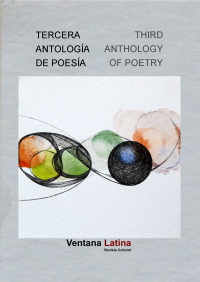An original spirit: William James in Brazil
by Maria Helena P.T. Machado
University of São Paulo
From Brazil through the Eyes of William James: Letters, Diaries, and Drawings, 1865–1866
Translated by John M. Monteiro
Harvard University Press, 2006
Republished with permission of the author
A completely different perspective emerges in the letters and diaries written by William James during his journey in Brazil. From the moment I set eyes on these papers, I noticed the presence of an original spirit. Despite being a volunteer in a scientific collecting expedition, James seemed to enjoy intellectual independence. During the eight months of his sojourn in Brazil, spent mostly in Rio de Janeiro and in the Amazon, James scribbled letters to his family, wrote a brief (incomplete) narrative describing his trip to the Solimões River, maintained a journal, and sketched a series of drawings depicting scenes and people from the expedition, which express not only a critical consciousness but also a moral distance from the colonialist intellectual enterprise that also guided the expedition. Because of this, although James’s Brazilian writings are well known to all the scholars who have studied this charismatic figure from the perspective of his intellectual biography—including Ralph Barton Perry, Gerald Myers, Howard Feinstein, Kim Townsend, Louis Menand, Paul Jerome Croce, Daniel Bjork, and many others—it is still worthwhile to point out, in the special context of the expedition, the special empathy that James displays in his observations on the tropical environment and the nonwhite populations that inhabited it.
Of course, James’s Brazilian writings are not always, shall we say, illuminated by an empathetic and relativistic approach. He expressed many feelings and emotions in his letters and journal, beginning with his ambivalence about the significance of the journey itself. He narrated moments of boredom and restlessness, revealed his desire to go home as soon as possible, and expressed irritation with the lethargy and inefficiency of the natives. One might expect this from a young man facing a journey that endeavored to cover little known areas of South America and that separated him for the first time from a particularly absorbing family, placing him under the orders of a leader who was prone to erratic and tempestuous decisions, changed travel plans arbitrarily, and kept his subordinates always at his beck and call. In addition, James caught chicken pox during the first months of his stay in Rio de Janeiro, with consequences that deepened his ill-will towards the journey for months.
At other times, James simply succumbed to the exotic, as for example in his frequently cited letter to Henry James, dispatched from the “Original Seat of the Garden of Eden,” in which he employs images derived from a standard repertory of descriptions of tropical nature:
No words but only the savage inarticulate cries can express the gorgeous loveliness of the walk I have been taking. Houp la la! The bewildering profusion & confusion of the vegetation, the inexhaustible variety of its forms & tints (yet they tell us we are in the winter when much of its brilliancy is lost) are literally such as you have never dreamt of. The brilliancy of the sky & the clouds, the effect of the atmosphere wh. gives their proportional distance to the diverse planes of the landscape make you admire the old Gal nature.
Later in the same letter, James appeals decidedly to the exotic, characterizing his surroundings as “inextricable forests” and referring to the local inhabitants as a naturalized component of the landscape:
On my left up the hill there rises the wonderful, inextricable, impenetrable forest, on my right the hill plunges down into a carpet of vegetation wh. reaches to the hills beyond, wh. rise further back into the mountains. Down in the valley I see 3 or four thatched mud hovels of negroes, embosomed in their vivid patches of banana trees.
These hyperbolic exclamations are quite consistent with conventional notions in the northern hemisphere regarding tropical nature. Many of James’s biographers imagined the journey in just this way, citing and analyzing this letter as an illustration of the kind of intellectual and emotional experience evoked by the lush and liberating world of tropical forests. Although James did not specify the exact location of this excursion, clearly it took place in the Tijuca Forest, only a few miles (not twenty, as James supposed, but around eight, as the Agassiz couple established in their Journey in Brazil) from the urban center of Rio de Janeiro, a pleasant location frequented by the upper crust of Rio’s society on weekends for strolls and picnics. Although Tijuca Forest remains to this day an important reserve of impressive natural resources and rare beauty, it was and still is an urban forest, situated on the outskirts of the imperial capital in the mid-nineteenth century, a destination for foreign travelers and local elites, all fascinated with the naturalist interpretation. On that particular occasion, Agassiz’s party stayed overnight at the Bennett Hotel, belonging to an Englishman and boasting modern amenities. As James noted, his visit to Tijuca was only a pleasant outing, although its profound effect is obvious in his admiration of the rich and varied vegetation of the Atlantic forest. It was not the full tropical forest experience, however: that came in the months that followed, when he went to the Amazon.
Conversely, James can also be surprisingly unconventional in demolishing the myth of tropical nature. He takes risks and is capable of empathizing with what he describes, including the native populations. He invites his readers to discover that Rio de Janeiro had a European air to it (“The streets in town & shops remind you so much of Europe”), that the Amazon was relatively civilized (“This expedition has been far less adventurous & far more picturesque than I expected. I have not yet seen a single snake wild here”), and finally, that the tropical environment was not all that mysterious, but rather somewhat tedious and repetitive (“here all is monotonous, in life and in nature that you are rocked into a kind of sleep”).
Nevertheless, James’s biographers have treated his trip to Brazil basically as a non-event, with the exception of one instance that is considered to be important in defining his future career. One of the most often cited passages expresses the young traveler’s despair with the tribulations of the journey, his lack of interest in naturalist tasks, and his budding desire to dedicate himself to philosophy:
I am now certain that my forte is not to go on exploring expeditions. I have no inward spur goading me forward on that line, as I have on several speculative lines. I am convinced now, for good, that I am cut out for a speculative rather than an active life, & I speak only now of my quality, as for quantity I became convinced some time ago & reconciled to the notion, that I was one of the very lightest of featherweights. Now why not be reconciled with my deficiencies.
Aside from such brief glimpses into his future as a philosopher, James’s Brazilian journey usually has been treated as a miscalculation or as another ill-fated project in his tormented intellectual and personal trajectory. In examining only one aspect of the journey, however, these studies have underestimated the impact of James’s Brazilian experience by neglecting the framework of the Thayer Expedition and the context of nineteenth-century travel in Brazil.
Daniel Bjork is the only James scholar to attribute a deeper dimension to his subject’s experience as a tropical traveler, as he remarks that beyond the more obvious aspects of the practical difficulties, James’s Brazilian sojourn provided the backdrop for his first experience with psychological death and rebirth. This sort of experience, which includes a first phase marked by depression and despair that might culminate in panic and loss of control, is followed by a rebirth stage, which has been interpreted as a fundamental moment for William as it was also for Henry James Sr., when he came in contact with the Swedenborgian faith. The rebirth episode that scholars point to in William’s case supposedly happened in April of 1870, when James, upon reading the work of French philosopher Charles Renouvier, gained sufficient inspiration to overcome his own depression and despair by means of the “will to believe.” For several biographers, this episode has been interpreted as a turning point in James’s life, as he faced a universe deprived of reason, coining the phrase that would bring him back to life: “My first act of free will shall be to believe in free will.”
According to Bjork, the first part of the journey, which James spent mainly in Rio de Janeiro and which was affected by disease, a feeling of inadequacy, and other difficulties, constituted the first phase of the experience, that is, his lapse into depression. The key would then reside in the second phase of his liberating experience, that of rebirth, which came out of his interaction with tropical nature and occurred basically in the Amazonian context. This stage of the journey, during which James navigated rivers and observed the fertility of tropical forests, afforded him his first encounter with the deep symbolic aspects of lush tropical nature. In this interpretation, it was the flow of winding rivers and the exuberant vegetation of the tropical forest that led James to identify the metaphor of water and its motion as a psychological principle.
After this it was decided to go over to a beach which lay opposite & spend the first part of the night. I suppose the beach had recently been connected with the left bank, but the river rising had already made it an island with a broad channel between it and the shore. I took a long walk over it & found neither gulls nor eggs but two enormous silvery trees which in their passage down had got their trunks across each other and then their branches catching the bottom had come to anchor in this spot. The river going down had left them, high & dry. No, not dry exactly for a deep pool had been excavated beneath them by the current which was now filled with green stagnant water & covered with minute flies. O to be a big painter for here was a big subject! Nothing could be more simple. The plain beach, the red West, the giant trunks with their crooked crowns & roots, (the largest could not have been less than 20 feet in circumference) the immense eddying stream & the thin far off line of forest. It was as grand & lonely as could be.
The scene, with its literally thousands of living forms interlaced in a constant and changing flow of life, seems to have captured James’s creative imagination for good. The image imprinted on his mind during this solitary stroll at sunset on some small river island on the Solimões may have laid the groundwork for his creative elaboration of the processes involved in the psychological production of thoughts. From the outset James had concluded that he “hated collecting,” referring to the purely menial aspect of his job. His aversion takes on a more significant dimension insofar as it applies to his rejection of a classifying and reifying approach to nature. The interwoven and complex nature of the jungle appears in James’s writing in direct opposition to the “anti-conquest” narrated by nineteenth-century naturalists. In Bjork’s view, this is why James might never have left Brazil: the meaning of this experience composed the base for a long and fertile reflection that filled his intellectual life. Starting with his idea of a stream of thought, James took his research in many directions, including a systematic study of mediumistic psychic phenomena.




 Copyright © 2024
Copyright © 2024